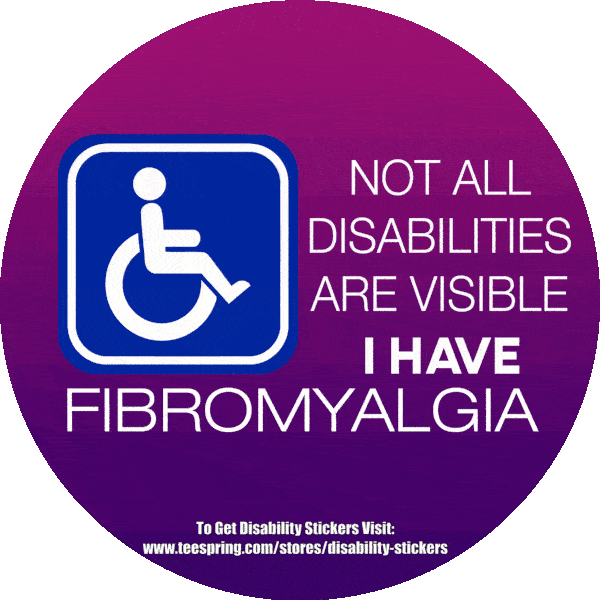Most of the patients with Fibromyalgia can identify the provoking episode they at least suspect was the facilitator that activated their Fibromyalgia symptoms. But as is the case with all things Fibromyalgia, no two events are necessarily similar. For some it was post pregnancy or minor operation when their symptoms started. For others it was after a virus-related infection. Emotional tension is another common reason mentioned by patients. I have not come near to catalogue all the variables and options that activate Fibromyalgia, which evidently helps exhibit the difficulties doctors face in identifying and treating FM. There were two inciting features in my history with Fibromyalgia. The initial brought on the illness, another gave it superpowers.
It has been approximately thirteen years now since the start of my FM. At the time I was a well and energetic person. I worked full-time in management at a high-energy, high-stress profession which I flourished on. I had one speed throughout this period of my life fast and furious. In addition to working round-the-clock, I took evening college courses. I had a lively social life which kept me going. I was physically fit and active rollerblading, hiking, and backpacking. My days were packed and my down time was pretty much nonexistent.
And then early one morning as I was showering for work, then everything transformed. From there my memories are unclear.
I was on disability for 6 months trying to get better. I never did. The symptoms of Fibromyalgia started to establish. The all over body pain was the most horrible of it. It was so bad I could not stand to sense clothes touching my skin. Even the weight of the sheet was too much painful. Everything else was vanished and agony became the main feature in my life. I wanted the pain to go away.
I was determined. Finally my doctor referred me to a Rheumatologist who then referred me to a Neurologist. I sat in his office determined and unintimidated and he in conclusion agreed that he believed I had Fibromyalgia. I had not once heard the term Fibromyalgia in the past, but I was relieved to have finally been given a name for what he thought was causing all of my symptoms. He referred me to a pain professional and she was the one who assisted me get my symptoms under control.
She was firm, straight, and not for a second did she reassure me to feel sorry for myself or let myself feel victimized. She is the one who rejected to prolong my disability. She enforced me to redefine my life and determine how I could still be a useful person, even with a chronic pain condition. First she put me through 16 weeks of treatment at a pain clinic though. There I learned how to lessen my symptoms with physical and aquatic therapy, meditation and relaxation, and biofeedback. I still suffered through several Fibromyalgia flare-ups afterwards my treatment, and there were times that I did desire I was on permanent disability, but the majority of the time I coped, and at times I even flourished.
Potential flare-up triggers
Certain elements can trigger a FM flare-up, for example changes in:
- Treatment
- Hormones
- Diet
- Psychological or physical stress
- Sleep
- Schedule
- Temperature or weather
Stressful events, accidents, or surgery can make FM symptoms worse. Flare-ups can also be caused by a lack of sleep or doing too much or too little exercise.
Treating fibromyalgia flares
Treatment for FM is often tailored and can contain a mixture of medication and lifestyle changes.
Treating FM flares can be delicate. Preventing a flare developing in the first place is less complex than treating a flare.
FM has several symptoms, which means that no one treatment will fix them all. Also, a treatment that works for one person may not work for another.
Various treatments in different combinations may have to be tried before someone finds a plan that works for them. The treatment plan will often be a blend of medication and lifestyle changes.
Medications that may help reduce fibromyalgia pain and improve sleep include:
- Naltrexone, which is an anti-opioid medication, may be helpful
- Antiseizure drugs
- Antidepressants
Talking rehabilitation such as CBT aim to alter the way a person thinks about things and might help tackle FM in a more optimistic way. Psychotherapy can also help someone with FM help understand and deal with their feelings and thoughts.
There is little evidence to show that other treatments for instance, massage, acupuncture, and aromatherapy help with FM. However, these procedures might help with relaxation and stress.
Though there is no cure for FM. But, medication and lifestyle changes can help treat FM and decrease the possibility of flares. FM is a condition that can be managed and people with the disorder can live a full life.
Participating in regular exercise is one of the most effective ways that FM flares can be avoided and pain can be managed.
Reference:: fibrohaven.com/2009/01/28/the-many-triggers-of-fibromyalgia/
For support and Discussion join the group “Living with Fibromyalgia and Chronic Illness”
Subscribe to our website for Email notification of our new Posts. Like and Follow us on Facebook. Swipe Left to Read more on Fibromyalgia or Click Here .
